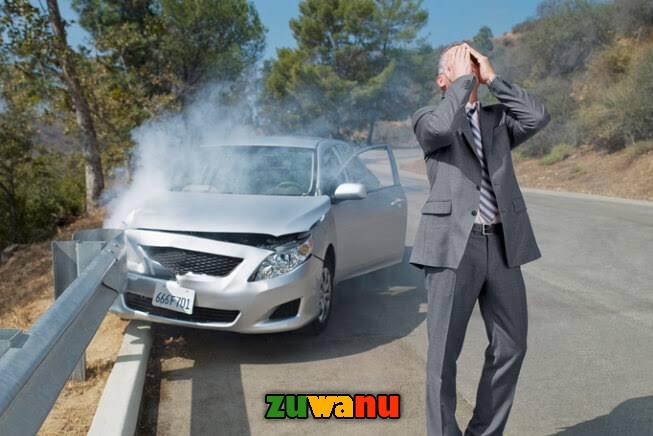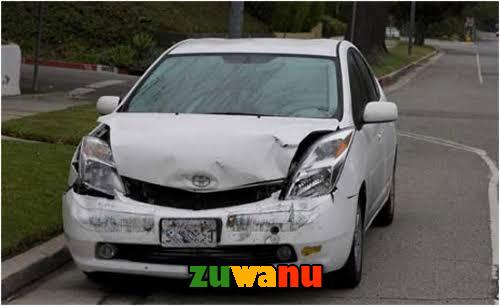What to Do When Brakes Fail: Causes, Precautions, and Safety Measures.
Table of Contents

Introduction: What to Do When Brakes Fail while driving.
Brakes are one of the most critical components of a vehicle, ensuring the safety of both the driver and passengers. However, brake failures can occur unexpectedly, leading to potentially hazardous situations on the road. In this article, we will delve into the causes of brake failure in cars, explore the necessary steps to take when faced with such a situation, and discuss preventive measures to avoid brake failure. Understanding these aspects is vital for every driver, as it empowers them to respond effectively in emergencies and proactively maintain their vehicle’s braking system.
I. Causes of Brake Failure in Cars:
Brake failure can be attributed to various factors, some of which include:
Brake Fluid Leakage:
One of the common causes of brake failure is a leakage in the brake fluid system. Brake fluid plays a crucial role in transmitting the force applied to the brake pedal to the brake calipers, leading to the compression of brake pads against the rotors. If there is a leak in the system, the loss of brake fluid can result in decreased pressure and an ineffective braking response.
Worn Brake Pads:
Over time, brake pads wear down due to continuous friction against the rotors. If neglected, excessively worn brake pads can compromise the effectiveness of the braking system, increasing the stopping distance and potentially leading to brake failure.
Brake Caliper Issues:
Brake calipers are responsible for housing the brake pads and facilitating their movement. Sticking or seized calipers can cause uneven braking or partial brake failure, as some wheels may not engage the brakes adequately.
Brake System Contamination:
Contaminants such as water, dirt, or debris can find their way into the brake system, causing corrosion and reducing the efficiency of the brakes.
Brake Line Damage:
Any damage to the brake lines, such as kinks or leaks, can lead to a loss of pressure in the system and result in brake failure.
II. What to Do When Brakes Fail:
Encountering a brake failure while driving can be a frightening experience, but keeping a calm mind and following the right steps can make a significant difference. Here’s what you should do:
- Stay Calm and Alert:
As soon as you realize your brakes are failing, stay calm and composed. Panicking will only exacerbate the situation. Keep your focus on the road and surrounding traffic, and prepare to take necessary actions. - Engage Emergency Brake:
Gradually apply the emergency or parking brake. This brake operates independently of the primary braking system and can provide some stopping power. Be cautious while using the emergency brake, as it may cause the vehicle to skid or lose control. - Downshift (for Manual Transmissions):
If you are driving a vehicle with a manual transmission, downshifting can help slow down the car. Shift to lower gears one at a time, using engine braking to reduce speed. - Pump the Brake Pedal:
Quickly pump the brake pedal to attempt to build up brake pressure. Sometimes, brake failures are caused by air trapped in the brake lines, and pumping the pedal might restore some braking power. - Look for Safe Zones:
Scan your surroundings for safe zones or areas with minimal traffic. Look for an open space, a pull-off area, or the side of the road where you can safely bring the vehicle to a stop. - Use Friction to Slow Down:
If you’re unable to stop the vehicle using the emergency brake or downshifting, you can use friction against roadside barriers or guardrails to slow down the car gradually.

III. Precautions to Avoid Brake Failure:
Preventive maintenance and responsible driving can significantly reduce the risk of brake failure. Here are some essential precautions:
- Regular Brake Inspections:
Schedule regular brake inspections with a qualified mechanic to ensure that your brake system is in optimal condition. This includes checking the brake pads, brake fluid levels, and brake lines for any signs of wear or damage. - Change Brake Fluid:
Replace the brake fluid as recommended by the vehicle manufacturer to prevent contamination and maintain the hydraulic system’s integrity. - Check Brake Pads and Rotors:
Monitor the condition of your brake pads and rotors regularly. Replace worn-out brake pads and ensure the rotors are within the specified tolerance levels. - Brake System Flushing:
Periodically flush the brake system to remove any contaminants and air bubbles that might compromise the braking performance. - Avoid Overheating the Brakes:
Avoid excessive braking, especially during downhill descents, as it can cause the brakes to overheat. Use engine braking and downshifting to manage speed on steep slopes. - Follow Proper Driving Practices:
Drive responsibly and avoid aggressive driving habits. Maintain a safe distance from other vehicles, anticipate traffic conditions, and avoid abrupt stops whenever possible.
Conclusion:
Brake failure is a serious issue that demands swift and composed action from drivers. Understanding the causes of brake failure, knowing what to do in such situations, and adopting preventive measures are essential for ensuring road safety. Regular maintenance, responsible driving, and being prepared for emergencies can go a long way in mitigating the risk of brake failure and enhancing the overall safety of the vehicle and its occupants. Always prioritize safety, and be prepared to take necessary actions when faced with a brake failure scenario on the road.
